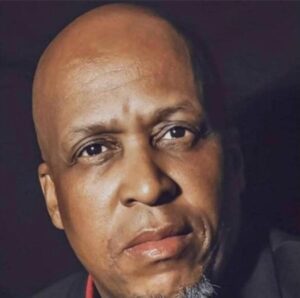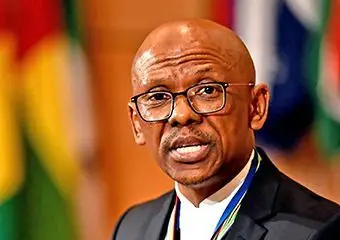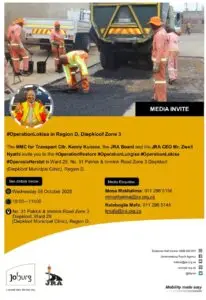By: Clyde N.S Ramalaine
Mthunzi Mdwaba appears resistant to advice, projecting an image of self-sufficiency and independence, evident in his reluctance to seek professional counsel such as legal or financial guidance. Despite this perception, a commitment to an open-minded approach led me to scrutinize his interviews, despite anticipating consistent narratives.
Contrary to Mdwaba’s claim of insufficient time during his 702 interview with Binga, he has in other interviews shown a proclivity to focus on personal anecdotes, trying to lecture everyone, diverting attention from the details of his active contract bid. This raises questions about the clarity and substance of his project, which, despite his impressive background, lacks a logical and comprehensible explanation.
Beyond the convoluted language surrounding his project, Mdwaba fails to ground his ideas in practical examples, leaving uncertainties regarding its tangible impact, especially in comparison to other job creation initiatives. While emphasizing his credentials, he overlooks the necessity of providing concrete evidence for his allegations against ministers, such as initiating legal proceedings. Mdwaba’s self-proclaimed guru status on job creation contrasts with his avoidance of fundamental actions, diminishing both his credibility and the concept of an ecosystem.
The analogy I often employ regarding public sympathy is that of a labour strike. Based on my observations, there is usually unwavering support from the public during the initial 1-5 days, where no questions are raised. However, from day 6-14, queries start arising as the strike becomes inconvenient for sympathizers. By day 14-21, the strike begins to lose momentum; workers themselves start feeling the impact, and public sympathy dwindles. Permit me to suggest that Mthunzi Mdwaba is currently in his day 6-14 cycle. He may assume control of interviews, but he is increasingly being made aware of his blind spots, and thus, sentiment is gradually waning. His repetitive interviews, devoid of basic essential actions, liken him to a typical labour strike losing public sympathy over a period of time. To salvage his credibility, Mdwaba should address basic questions, including the absence of legal action against alleged corruption.
This is by no means, on my part, a defense of ANC ministers. Let the evidence stand; open a case. There is ample evidence that ANC leaders are often compromised. Notably, the silence of the chairperson of the ANC Integrity Commission is perplexing. One would have thought that, since the breaking of the news, the accused would have been called in to discuss these claims. Then again, during the Tina Joemat conversation with the former Public Protector’s husband, the Integrity Commission was on vacation and remained silent.
The inconsistency in Mdwaba’s defense, invoking racial mistrust, aligns with McWhorter’s concept of victimology but does not suffice as a comprehensive justification. His readiness to engage with critics like Tebogo Khaas contradicts his claim of being a sacrificial lamb, raising questions about the authenticity of his motives.
Mdwaba’s propensity to denigrate others based on hearsay and his selective protection of friends suggests a borderline narcissistic personality disorder. His emphasis on personal success, especially with previous accolades, does not justify his entitlement to a government contract while simultaneously accusing it of corruption.
Despite numerous interviews, Mdwaba’s failure to pursue legal channels to validate his contract and his contradictory stance on law enforcement undermine the sincerity of his actions. His case echoes Netanyahu’s approach in the Israeli-Palestinian conflict, inflicting collective punishment without a clear future course of action.
My unsolicited advice is that he refrains from these theatrics of interviews and let his words carry weight in the assigned and designated spaces that a constitutional democracy affords its citizenry. If Professor Mdwaba has no evidence against those he slander, let him be sued, and may the many millions he readily boasts about so easily cover all the libel cases he is attracting—either because he does not heed legal advice or is poorly advised. We are not interested in whether his mother and Thulas Nxesi’s mother share a birthday or that he had bought gifts for Nxesi when they were on speaking terms. Nor are we interested in hearing where and when Thulas Nxesi cried.
We simply need the facts as to why Thuja, his private company, has an inalienable unique right in entitlement to any money from the UIF. The rest of the ANC politics which he often, in interviews where he is allowed free rein, naturally strays into, he is part of, given his general sharing of membership in such a party, and his knowledge of the intricacies of who will not come back to ministerial office is of interest to those in the ANC circus, just not to us. Mdwaba’s trivial talk on the SACP’s irrelevance sounds akin to former Eskom CEO Andre de Ruyter’s comment on communism—irrelevant to the issue at hand.
In conclusion, I will not take Mdwaba’s soap opera, attention-seeking seriously until he takes himself seriously and opens a case. I will not listen or read anything he shares until he answers the questions which no eloquence or CISCO status of repeats can dispel. Mdwaba has questions to answer and must quit his self-ordained inalienable right to UIF money.

-Political Analyst, Author Freelance Writer
-BTh. (Hons-Status) UWC, MA Systematic Theology cum laude NWU, Ph.D. [Politics & International Affairs] UJ,
-SARChi & CADL [Centre for African Leadership Development] Post-Doctoral Research Fellow







